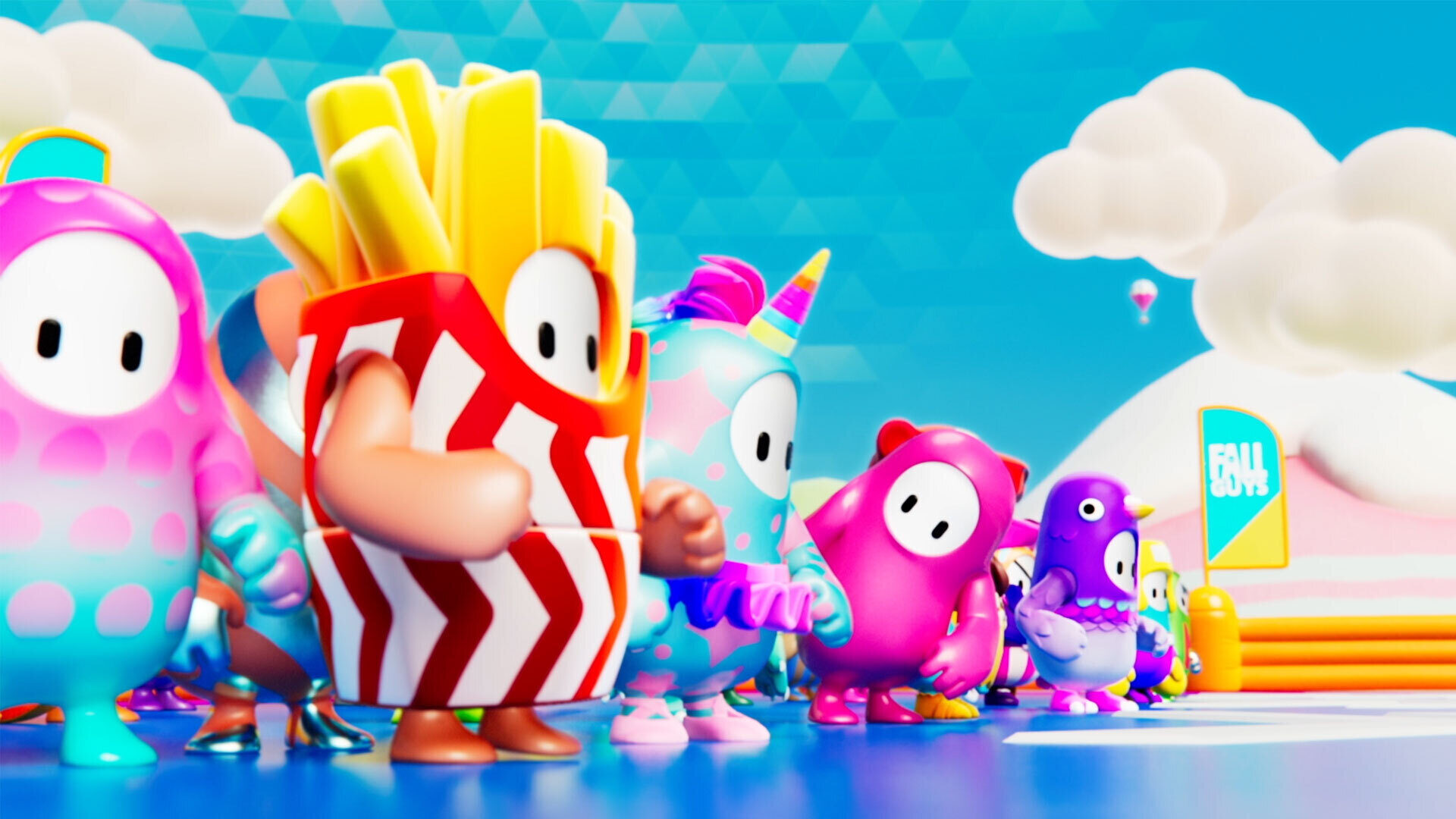Fall Guys dev once thought about Red Light, Green Light—after Squid Game, may 'have another crack'
Bean there, done that.

It's not quite the all-conquering phenomenon that it was during a certain period of lockdown, but the colourful knockabout fun of Fall Guys now just seems something of a fixture in the games scene. Its simplicity, readability and inherent humour mean this is something people will be playing for many years to come—and as is typical these days, that early success has turned a standalone title into something of a service game.
Developer Mediatonic recently had a booth at EGX (as booth ideas go, giant obstacle courses is a good one), and our colleagues at TechRadar caught up with the game's lead designer Joe Walsh. Speaking to the game's breakout success, Walsh reckons that its inspirations outside of the usual were the key. "The difference with Fall Guys is that we were inspired by television," Walsh told TechRadar. "And it ended up being quite perfect timing with the growth of Twitch while we were working on the game. But really the inspiration for it is Takeshi's Castle and Total Wipeout. It's A Knockout for people who are maybe a bit older.
"And those game shows are so amazing. I spent my childhood watching them and loving them, and I've always wondered what it would be like to compete on those shows. And that was really the genesis of Fall Guys. I think that's what makes it so unique is that it's the only game to draw inspiration from that area. I think it's been a big reason as to why it's been such a hit."
The only one I think he missed is Gladiators, but then I'm one of those who thought Gladiators was the greatest TV show ever made when I was 10. Something about that Saturday evening family entertainment slot is in Fall Guys however: it really understands that, sometimes, just watching people fall over is as funny as it gets.

Fall Guys now gets new content during themed seasons, and as well as a constant conveyor belt of cosmetics continues to introduce new game modes and ways to play. Walsh returned to the theme of popular TV shows here, picking out a concept used in Squid Game that was once considered but rejected.
"Oh, yeah, there's definitely a lot [of levels that don't make it]," says Walsh. "One of the ones that's come up recently, again, is Squid Game, [which] is now the biggest TV show in the world. And it opens with Red Light, Green Light, which is something that we dabbled with. And we never actually got to prototyping it, because we couldn't quite see how it works."
Red Light, Green Light is a simple game: competitors line up and when the green light shows can move towards the finish line. When the red light shows, everyone has to stop moving immediately, and those that don't go back to the start.
Keep up to date with the most important stories and the best deals, as picked by the PC Gamer team.
That would seem quite an odd fit for Fall Guys, where part of the joy is in your character's wobbly onwards momentum: equally, that's why a clever implementation of it could work.
"Within a video game there's something about movement, which is in real life it's very hard to stay still," says Walsh. "But in a video game, you just put your controller down. And so at the time, I think we were like 'we'll never do Red Light, Green Light, it doesn't make sense.' But now seeing how popular Squid Game is I'd love for us to have another crack at something like that and see if we could do it in Fall Guys."
Whether it's a terrifying Spelunky Guy or a bizarre chibi Bomberman, new Fall Guys content appears constantly and, with Mediatonic's acquisition by Epic earlier this year, the Fortnite-style shotgun approach will continue. Whether that means we'll get a Red Bean, Green Bean mode, or Walsh is just thinking aloud, remains to be seen.

Rich is a games journalist with 15 years' experience, beginning his career on Edge magazine before working for a wide range of outlets, including Ars Technica, Eurogamer, GamesRadar+, Gamespot, the Guardian, IGN, the New Statesman, Polygon, and Vice. He was the editor of Kotaku UK, the UK arm of Kotaku, for three years before joining PC Gamer. He is the author of a Brief History of Video Games, a full history of the medium, which the Midwest Book Review described as "[a] must-read for serious minded game historians and curious video game connoisseurs alike."

